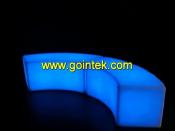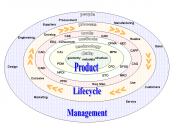ETO versus Repetitive Differences
The major differences between engineer-to-order (ETO) and repetitive/volume-base manufacturing environments throughout different phases of a product life cycle as well within various functional departments within a manufacturing organization. First of all, prior to any manufacturing, there is extensive work in the product definition phase (i.e. estimation, design, and engineering) before anything can be made, bought or delivered. However, the major difference is that within ETO companies the product design is an integral part of production (if not even afterwards, during the site installation and commissioning), whereas for repetitive, standard items the design is typically completed and handed "over the wall" to the manufacturing well before the production starts.
In volume manufacturing, product definition work is amortized (recovered) over the items' life cycles, which are often measured in thousands of items and over several years of commercial use. Whilst a possible time overrun here will effect the time-to-market of the product, (which is often the competitive advantage (strategy) in addition to lower costs for repetitive manufacturers), it has no effect on the overall lead-time of any particular sales, job, or project order, and is therefore not handled in the same way.
Moreover, the extensive costs of product definition are absorbed into the company overhead or standard product costing, so that an overrun of costs can be managed in the context of a long term pricing strategy.
Project-based/ETO manufacturing is very different, as a majority of the total project lead-time and expenditure can come from engineering, which makes it crucial for the company to engineer correctly and maintain costs. Complex manufacturers produce products that are of high variation, have complex features and options, and vary in end user configuration. Each job is unique and the variables are based on client specifications rather than on the options from...


